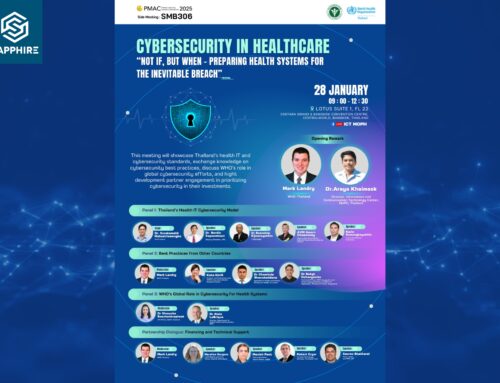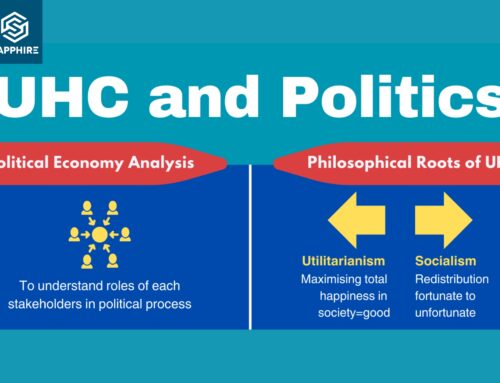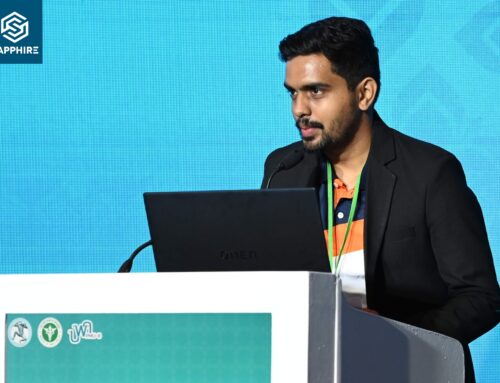This blog has been jointly written by Dr. Phetsavanh Chanthavilay from the Institute of Research and Education Development, University of Health Sciences, Lao PDR, and Mr. Nantasit Luangasanatip from the Mahidol-Oxford Tropical Medicine Research Unit, Thailand. Their participation in this event was supported by the Access and Delivery Partnership (ADP) grant to the Health Intervention and Technology Assessment Program (HITAP), Thailand.
The vaccinology workshop and symposium held on 18-21 November in India co-organised by HITAP, Translational Health Science and Technology Institute (THSTI), Jawaharlal Institute of Postgraduate Medical Education and Research (JIPMER), London School of Hygiene and Tropical Medicine (LSHTM), and National University of Singapore (NUS) was our first time attending a short training on vaccinology within the Asian context. We were curious to understand how the lecturers would condense the vaccinology discipline into a three-day workshop indicating that the workshop would focus only on the core components of the subject. Moreover, India, as workshop venue, would offer beautiful diversity in population and culture from the different parts of this big country. We were really excited and looking forward to learning new approaches and networking with new people.

Dr. Phetsavanh Chanthavilay (center) and Mr. Nantasit Luangasanatip (far right) networking with other participants.
The policy symposium was organized on the first day, followed by a three-day training workshop. The policy symposium was filled with interesting discussions and gave us an opportunity to meet with key leaders in this field from different countries, including founders of many institutes and non-governmental organizations. The story about how they founded and now run their institute was greatly inspiring. Moreover, the symposium provided learnings on key issues to consider when introducing a new vaccine and how to make vaccine policies a priority. This really helped us widen our perspective to the world class vaccine structure, and to pay more attention to the procedures surrounding its uptake.
The three-day workshop was motivational, but intense, with key components clearly brought out to the participants. We enjoyed the way the lecturers engaged the audience, particularly Prof. David Heymann and Prof. Mark Jit. Their lectures were interactive and kept the participants engaged. They allowed people to ask questions at any time during their presentation, also asking the questions to the audience during their talks. There was a lot of discussion from the participants throughout the workshop and symposium. This made the course lively and really enjoyable. The role play using the case study of influenza virus to introduce the four essentials for a successful functioning of WHO i.e. negotiation, technical feasibility, global advocacy, and initiation, was really fun, and unexpected. Luckily, I (Phetsavanh) was part of this role play, acting as a country representative to support the idea of not sharing the virus specimen, and this challenged me a lot to think outside the box.

Dr. Phetsavanh Chanthavilay (4th from left) participating in the role play on influenza for virus.
The symposium and workshop gave us a lot of ideas about how we can improve our organization and our work. Working as a team and network could enhance our capacity and extend our repertoire beyond the limit. From this workshop, we believe people had the opportunity to learn the technical and policy aspects of vaccines, but also about the way to organize a good workshop and collaborate with people from different cultures and styles.
We really enjoyed participating in this workshop and having the chance to discuss and further collaborate with people around the world. The workshop venue was convenient and located in a nice neighborhood. The Indian food was amazing and a nice surprise, because we did not expect to have such a delicious food; it was completely different from the Indian cuisine available in our countries (Lao and Thailand). Moreover, the workshop facilitators were friendly and accessible; everything was so well organized. There was a transportation readily available since our arrival and during the workshop from the hotel to the workshop venue.
However, the workshop venue was held outside the Delhi city center. Next time, it may be helpful to organize the workshop in the city, so that participants outside the city or outside the country have a chance to observe and learn local culture and context, and spend less time commuting to the workshop venue.
Overall, we were really impressed with this event and found it really useful. We believe that if this course is expanded to other parts of the world, it will most definitely help increase the number of people involved with the vaccine supply chain and improve their knowledge on the subject. They will also be more effective at sharing their knowledge with the experts and at advocating the use of evidence to policy makers.
Finally, we would like to show our gratitude to the Access and Delivery Partnership (ADP) for funding, and Health Intervention and Technology Assessment Program (HITAP) for facilitating our participation in this event. We hope to remain connected for future collaborations.



